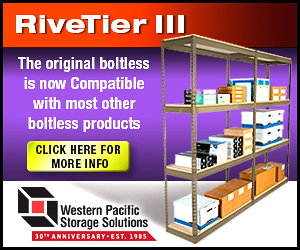|
MHI Blog -- Today authenticity is more than just a buzzword, it’s the cultural movement of the new millennium. Oxford Dictionaries defines authenticity as, "Of undisputed origin; genuine." Society devalues "fake" and is drawn to what is true in every part of life such as food, product reliability, environment and animal welfare, pricing and finances, leadership, communication, etc. An article from Stanford Business, Glenn Carroll: The Value of Authenticity, explains "One of the biggest trends driving consumer consumption during the past decade is the demand for "real," or authentic, items. Farmers markets, microbreweries, and all kinds of artisanal crafts, to name a few examples, have jumped in popularity." The question is why is this happening and how does this effect personal and company brands?
Visit http://s354933259.onlinehome.us/mhi-blog/the-value-of-brand-authenticity/ to view the full article online. |
|
Reuters -- Israeli industrial designer Kobi Shikar has come up with the concept of a parcel delivery drone that will never get off the ground - and that's just fine with him. The Transwheel Delivery Drone is a sensor-packed motorized unicycle that Shikar says could be an earthbound alternative to Amazon's futuristic plans to use drone multicopters to deliver packages to your front door.
Visit http://uk.reuters.com/article/2015/10/14/us-israel-deliveryrobert-idUKKCN0S815E20151014 to view the full article online. |
|
The New York Times -- Multinationals around the globe have begun to look seriously at manufacturing in India, with its plentiful and inexpensive labor pool. But the investment doesn’t mean doing business in India is getting easier. Rather, it is a sign that doing business in China is getting more difficult.
Visit http://www.nytimes.com/2015/10/15/business/international/indias-manufacturing-sector-courts-the-world-but-pitfalls-remain.html?ref=topicsL to view the full article online. |
|
Modern Materials Handling -- To support e-commerce and higher expectation for fast and accurate delivery, nearly nine in 10 distribution center operators expect to adopt new mobile devices and voice-direction technology in the next five years. These are among the results of a survey by Honeywell and YouGov that reflects the opinions of hundreds of IT decision-makers across the United States, United Kingdom, France and Germany.
Visit http://www.mmh.com/article/e_commerce_driving_dc_need_for_mobile_technology to view the full article online. |
|
Chicago Tribune -- Christmas won't come early this year, but the gifts might. Just in time for the winter holiday shopping season, Amazon, Wal-Mart, Macy's and other retailers are working behind the scenes to make sure they can deliver online orders to shoppers faster. Retailers are building bigger warehouses —some the size of 20 football fields — to handle shipments. They're also sending orders to shoppers directly from their stores and using sophisticated software that tells them the quickest, cheapest way to get orders shipped. And Amazon is cutting the time it takes to process an order from hours to minutes by using robots to pull items for shipment in its warehouses.
Visit http://www.chicagotribune.com/business/ct-faster-holiday-deliveries-20151016-story.html to view the full article online. |
|
AP -- Despite widespread calls to fix crumbling highways, bridges and rail systems, a House bill introduced Friday maintains spending at current levels - suggesting Congress is unlikely to soon tackle a growing transportation maintenance and modernization backlog. The bipartisan, six-year bill provides about $325 billion over the next six years, continuing the current spending rate while allowing for inflation, congressional officials said.
Visit http://hosted.ap.org/dynamic/stories/U/US_HOUSE_TRANSPORTATION_BILL?SITE=AP&SECTION=HOME&TEMPLATE=DEFAULT&CTIME=2015-10-16-14-41-10 to view the full article online. |
|
Visit https://www.naylornetwork.com/mhi-newswire/articles/index-v2.asp?aid=344719&issueID=40831 to view the full article online. |
|
The Wall Street Journal -- ON Semiconductor was already working to bolster its supply chain resiliency in 2011 when a series of natural disasters including an earthquake and tsunami in Japan disrupted supplies for months for many multinational companies. With its overhaul already underway, ON Semiconductor scrambled to complete its plans. "We were already working on this when those natural disasters hit," said Brent Wilson, senior vice president of global supply chain operations at Arizona-based ON Semiconductor. "It forced our hand and we quickly moved to new sources, as we knew existing sources would be encumbered for many months."
Visit http://blogs.wsj.com/riskandcompliance/2015/10/20/building-resiliency-into-the-supply-chain/ to view the full article online. |
|
Material Handling & Logistics -- Uber isn’t valued at more than $50 billion because it's a "taxi app," explains Adrian Gonzalez, president of consulting firm Adelante SCM, but because "investors see Uber as a logistics company." Gonzalez, as reported by Keven Jones of Fleet Owner, said that Uber has a range of logistics-related projects under way which makes it an emerging competitor in the logistics space.
Visit http://mhlnews.com/transportation-distribution/logistics-industry-faces-against-emerging-competitors to view the full article online. |
|
PDD Net -- Looking toward the future, businesses are taking a more standardized approach and respecting the importance that labeling solutions play in the supply chain. Companies are beginning to understand that they need to develop a labeling strategy alongside their supply chain strategy. They are working toward identifying a solution to meet all of the challenges of functioning in today’s global supply chain. This new focus on the strategic value of labeling has required a different and innovative approach to labeling called "Enterprise Labeling."
Visit http://www.pddnet.com/article/2015/10/enterprise-labeling-connected-flexible-efficient-supply-chain to view the full article online. |
|
Supply Chain Brain -- The return of some manufacturing capacity from China has fueled economic growth in Mexico and Canada. John Kelly, president of the Canadian Division of Transplace, outlines some of the opportunities and challenges that have resulted from that development. Kelly notes an "uptick" in U.S. trade with Mexico and Canada. The reason, he says, is the increased cost of production in China, along with the expense of moving product by air and ocean, and the risk of disruptions such as port congestion and labor unrest. "There's been a push toward near-sourcing in Mexico," he says. "It's really happening."
Visit http://www.supplychainbrain.com/content/single-article-page/article/the-rise-of-trade-with-canada-and-mexico-1/ to view the full article online. |
|
Industry Week -- My professional experience has included significant interface with and support of the Manufacturing Extension Partnership (MEP). For those of you that don’t know, MEP is a part of the National Institute of Standards and Technology (NIST)—a U.S. Department of Commerce agency—and was created by Congress in 1988. The organization’s strategic objective is to create value for all manufacturers, with their targeted clientele small (less than 150 employee) and medium-sized (150 to 500 employee) enterprises (SMEs). A primary part of this is the increasing of SME manufacturing competitiveness. MEP does this by offering federal (and sometimes state) subsidized manufacturing efficiency consulting, which brings to SMEs a level of outside manufacturing improvement support they can’t normally afford.
Visit http://www.industryweek.com/supply-chain/implementing-supply-chain-based-economic-development to view the full article online. |
|
Visit https://www.naylornetwork.com/mhi-newswire/articles/index-v2.asp?aid=344720&issueID=40831 to view the full article online. |
|
Green Biz -- In the Wild West of global supply chains — complex production networks notorious for outsourcing jobs, unaddressed safety hazards and myriad inefficiencies — gadgets such as smartphones and sensors might seem an unnecessary distraction. The wave of companies jumping into the supply chain technology market would beg to differ.
Visit http://www.greenbiz.com/article/9-supply-chain-tech-companies-you-should-know to view the full article online. |
|
21st Century Supply Chain -- It’s October 21, 2015. Does the mere mention of that date get anyone else excited about the possibility of seeing Marty McFly and Doc emerge from the DeLorean? Today is officially the day the duo jump to in Back to the Future II to save McFly’s son. Going down memory lane I found some ‘still-pending’ future promises related to supply chain and logistics. While lots of them have become a reality (MRP calculations in seconds? check!), here’s my take on what I would have expected to be common place today if you’d asked me 10 years ago (as I was nowhere near logistics back in 1985!)
Visit http://blog.kinaxis.com/2015/10/not-really-back-to-the-future-failed-supply-chain-predictions/ to view the full article online. |
|
Material Handling & Logistics -- A new study by Navigant Research looked at the strategy and execution of autonomous vehicle technology for 18 automakers. The OEMs were rated on 12 criteria: vision, go-to market strategy, partnerships, production strategy, technology, geographic reach, sales, marketing and distribution, product capability, product quality and reliability, product portfolio, pricing and company commitment. found. The study only considered OEMs, not technology companies including Google, which already has tested its self-driving electric cars on the road.
Visit http://mhlnews.com/technology-automation/who-s-leading-race-autonomous-vehicles to view the full article online. |
|
Business 2 Business -- Supply chain management is a critical function for any small to mid-sized business. Yet, too often companies rely on spreadsheets to manage supply chain activities — a risky prospect that’s labor-intensive and error-prone. A better option is to bring these activities into your financial management or ERP system. Centralizing tasks such as order filling, inventory management and delivery tracking can positively impact sales, improve cash flow and keep you tax compliant. Here are five ways that ERP supply chain management benefits your bottom line.
Visit http://www.business2community.com/business-innovation/close-the-loop-on-supply-chain-risk-5-strategies-to-move-product-boost-sales-and-automate-efficiency-01351001 to view the full article online. |






